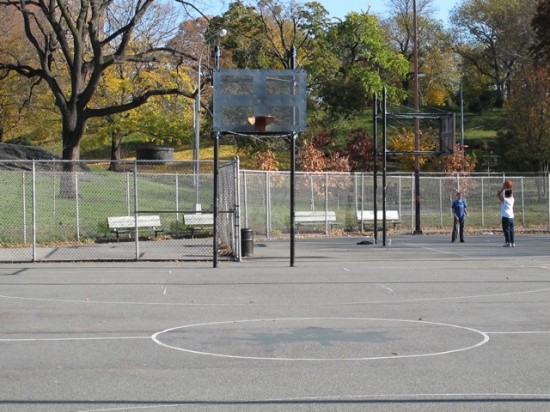
Councilmember Melissa Mark-Viverito slapped an imaginary $1 million on the table and asked her constituents what it should be spent on.
“Restoring the parks that are here, basketball courts, and sidewalks in the street need to be fixed,” responded Alice Cerezo, 45, a Mott Haven resident.
“I put in for exercise equipment for senior citizens, and movies. I definitely want senior citizens to have somewhere they can come to watch old movies and enjoy themselves,” said 73-year-old retiree Kenneth Moore, who has lived in the neighborhood for 35 years.
Mark-Viverito is one of four City Council members who have turned to the public to decide how the district’s discretionary budget should be distributed this year. The process, known as participatory budgeting, is new to New York City politics.
About 40 local residents split into groups at the Millbrook Community Center in October to exchange ideas about how $1 million in discretionary funding should be spent. Park renovations, new sports equipment for youth programs, and a community space for barbecuing were among the ideas raised.
Funding the entire wish-list would cost far more than the councilwoman has at her disposal, and Mott Haven occupies only a small part of her district, most of which is in East Harlem. Constituents from her East Harlem catchment have held six budget-brainstorming meetings of their own.
Anyone who lives or works in the district can volunteer to serve as a budget delegate, to select from the ideas presented at the brainstorming sessions and put them to a final pubic vote in March.
Mott Haven resident Carmen Aquino said she is worried so many of the budget delegates are from Manhattan.
“How is it going to be fair for us to propose projects? How many of those projects that we are going to propose are really going to get funding?” Aquino said.
Mark-Viverito said uneven distribution of funds is a concern, but she is confident Mott Haven will get its fair share.
“All aspects of the district are kept in mind,” Mark-Viverito said, adding “it’s reflected in what the projects are.”
Last year, Mark-Viverito had $4 million in discretionary funds to disperse. She says she won’t know how much she has at her disposal this year until the city budget process begins, but she has promised $1 million of that amount for the participatory initiative. She declined to say how much of last year’s discretionary budget was spent in her Mott Haven district.
Donna Kerchheimer, a political science professor at Lehman College, said community boards already fulfill a participatory budgeting role in the existing system, through public hearings and by providing funding requests for their districts.
“Wouldn’t you call that participatory budgeting of a certain type?” she asked.
Mark-Viverito said the advantage of participatory budgeting over the traditional process is that anyone can be directly involved.
“The process is very engaging. I really love it because I think it is going to give people a real sense of hope that they can be agents of change in their community,” she said.
Chicago is the only other major city in the country that has implemented participatory budgeting, although more than 1,200 cities worldwide have experimented with the process, according to the Participatory Budgeting Process’ website.
A Chicago alderman last year recounted to New York City Council members how the process has worked in the windy city so far, but only four of the 51 members have chosen to implement it.
Mark-Viverito said the initiative has been a hard sell among Council members because the process chews up time and resources. She added that she and the others who are experimenting with it will create a template by next year to make it less complicated to use.
She hopes that will be enough to encourage more council members to bring it to their own constituents.

[…] Councilwoman Melissa Mark-Viverito first introduced the initiative in Mott Haven in 2011. It calls on residents to voice their views, then for those ideas to be reviewed in neighborhood […]